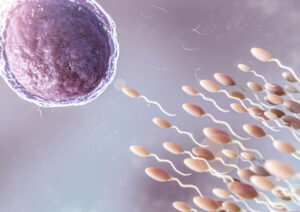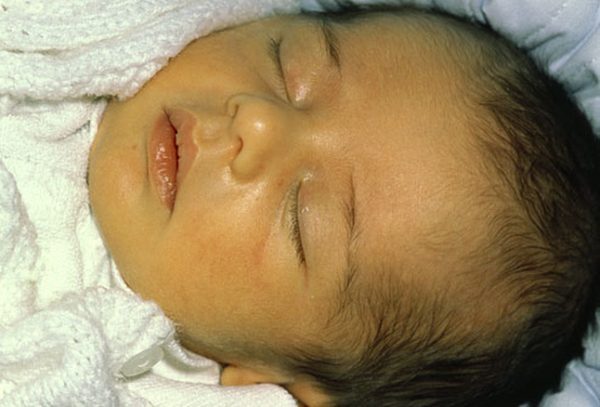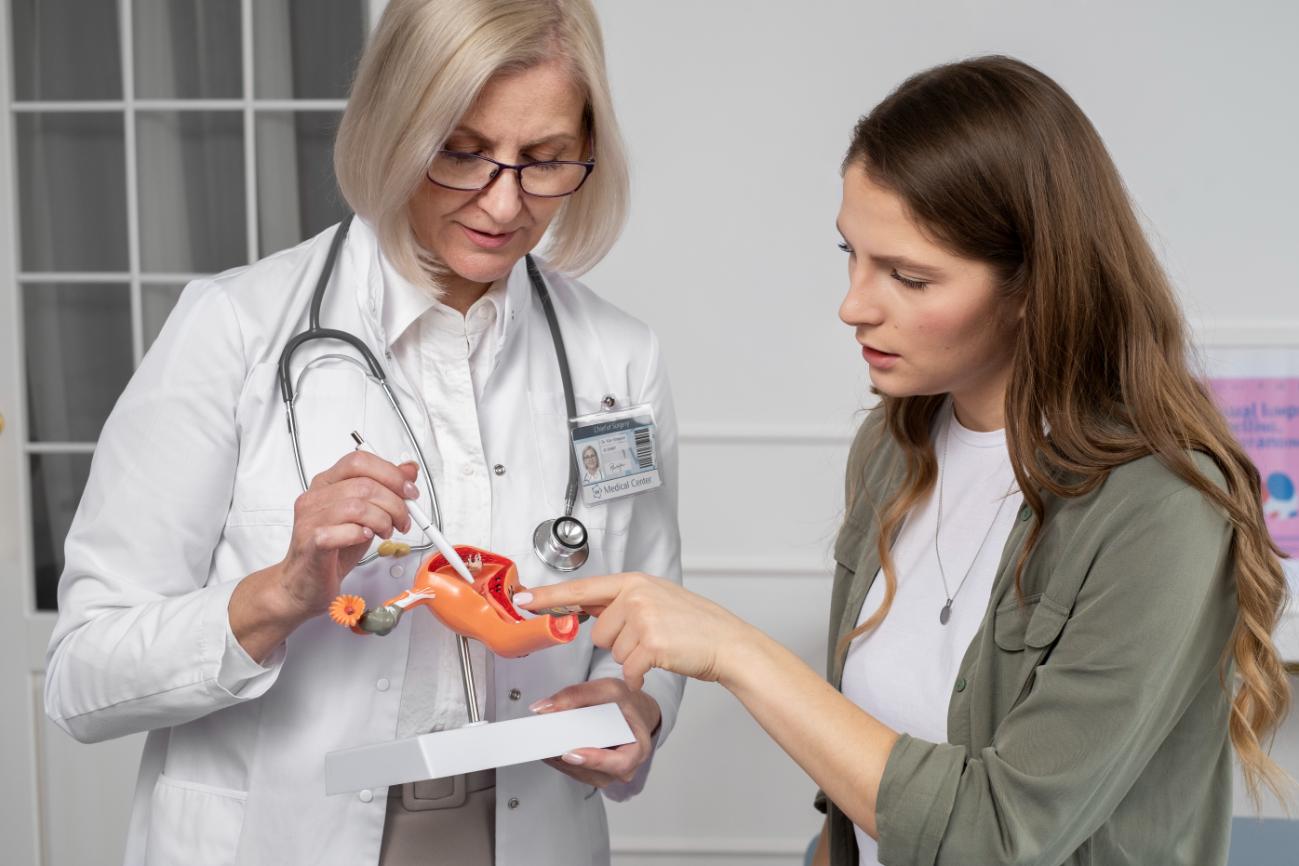
Egg Quality In Women
The term “egg quality” describes an egg’s genetic normality (euploid) or abnormality (aneuploid). All of a woman’s eggs (about one or two million) are present at birth, and each month, one of those eggs becomes ready for ovulation. The egg begins to mature after it is chosen for ovulation. The process of creating a healthy kid is prone to error as eggs age, leading to the presence of aberrant DNA and preventing the egg from fulfilling its intended function. Strong embryo growth is encouraged by high-quality eggs, which are crucial for successful sperm fertilization. The likelihood that the embryo will implant into the uterus is higher with a high-quality egg. In other words, successful pregnancies are the outcome of higher-quality eggs creating higher-quality embryos. Crucial features of a high-quality, healthy egg include having the necessary number of chromosomes and the capacity to fuse with sperm.
Signs Of Good Quality Egg And Poor Quality Egg
In terms of fertility, female egg quality refers to the state of health and developmental potential of a woman’s eggs or ova. It is an important aspect that impacts the likelihood of a healthy pregnancy and a successful conception.
Signs Of Good Quality Egg
Good quality eggs increase the likelihood that the eggs will be fertilized, grow into an embryo, implant, and result in pregnancy. Fertility depends on healthy eggs since the genetic material required for the development of the embryo comes from them. Sometimes a chromosomally defective egg will not fertilise, and if it does, it may result in an aberrant embryo that will either implant normally or, tragically cause a miscarriage or produce an unhealthy child. Thus, “good egg quality” is linked to higher rates of fertilisation, better-quality embryos, and a better likelihood of a successful implantation.
Signs of good quality eggs include:
- Balanced hormone levels
- Regular cycles of menstruation
- Variations in the body’s baseline temperature and cervical fluid throughout the menstrual cycle.
A healthy egg or an ovum with proper genetic makeup has 23 chromosomes (euploid). An egg with chromosomal abnormality (aneuploid) has fewer or more chromosomes than 23. This results in low egg quality and the emergence of genetic abnormalities after fertilization.
Also Read: Signs of Positive Embryo Transfer
Signs of Poor Quality Egg
Poor-quality eggs can make it difficult to conceive, raise the risk of miscarriage, and reduce the likelihood that a pregnancy will be successful.
Signs of poor-quality eggs include:
- Hormonal imbalances may be the cause of irregular or inconsistent menstrual cycles, which may have an impact on the quality of eggs.
- One indicator of poor egg quality could be an unusual chromosomal count. There will either be fewer or more chromosomes than normal in eggs that are aberrant or of low quality.
- Because chromosomally defective embryos are more likely to miscarry, several miscarriages may indicate poor-quality eggs.
- Low levels of Follicle follicle-stimulating hormone (FSH) may be a sign of declining egg quality. FSH is a hormone that is released by the pituitary gland that instructs the ovaries to release an egg each cycle.
- Infertility therapies that regularly result in low egg production or low fertilization rates may indicate a problem with the quality of the eggs being produced.
- Low estrogen levels are another indicator of poor egg quality. The hormone responsible for transmitting messages from the ovaries to the brain is called estradiol.
- Reduced anti-mullerian hormone (AMH) levels could be one indicator of poor egg quality. AMH is a glycoprotein that is secreted by egg cells during their early developmental stage. It aids in the development and maturation of the eggs.
If you’re experiencing issues with egg quality, consult the best IVF hospital in Kerala. They’ll assist in improving egg quality for your parenthood journey.
What Causes Poor Quality Egg?
The quality of the egg inevitably declines with age. However, there are additional variables as well that cause women to become infertile and reduce the quality of their eggs. It is essential to understand the underlying causes in order to solve the issue. The following are a few proven reasons why eggs aren’t of high quality:
Age
Egg quality is significantly influenced by age. Age-related declines in egg production may increase the likelihood that the remaining eggs may have genetic flaws. Therefore, after the age of 35, fertility tends to diminish.
Autoimmune Disorders
The quality of the eggs and the ovarian reserve can both be negatively impacted by an inflammatory attack on the ovaries.
Genetic Disorders
Low egg quality may also be caused by a hereditary predisposition. The quality of eggs produced can be affected by certain genetic diseases.
Lifestyle And Environment
Egg quality can be impacted by a number of behaviours, including smoking, excessive drinking, being overweight, and being exposed to environmental pollutants.
Tubal Disorders
One of the most common reasons for low egg quality and infertility in women is recognised to be tubal disorders.
Radiation And Chemotherapy
Radiation therapy at high levels has the potential to impair egg quality and perhaps cause early menopause. According to research, chemotherapy may cause the ovaries to stop producing oestrogen and eggs.
Endometriosis
This disorder affects the quality of eggs when tissue resembling the lining of the uterus grows outside of it close to other reproductive organs, such as the ovaries.[/vc_column_text][/vc_column][/vc_row][vc_row][vc_column][vc_column_text]
Also Read: Menstrual Cycle and Your Health
How To Improve Egg Quality?
Here are some tips on how to improve the quality of your eggs for IVF or pregnancy.
Eat A Healthy Diet
One of the strategies to have high-quality eggs is to be in generally good health. It is influenced by what you eat and drink. Studies indicate that a diet high in fruits, vegetables, and other nutrients can enhance fertility. Make sure all of the foods in your diet are nutritious; stay away from processed, sugar-filled, and high-saturated-fat foods. In addition to consuming a nutritious diet, using vitamins that aid in egg production is recommended. Additionally, fish oil, vitamins A and E, and melatonin improve the quality of eggs.
Achieve A Normal BMI
The chances of getting pregnant can be increased with a normal body mass index. Obesity has been associated with lower egg quality and increased oxidative stress on your cells.
Boost Blood Flow
Healthy egg production depends on the ovaries receiving oxygen-rich blood. It is crucial to maintain proper hydration in order to boost the oxygenated blood flow to these organs. Drink six to eight glasses of water or other fluids every day, minimum. Exercise is crucial because it improves circulation throughout the body and boosts blood flow to the heart. Moreover, massage therapy and yoga help improve blood flow.
Manage Stress
Stress can cause the release of chemicals like prolactin and cortisol, which can disrupt or stop ovulation and reduce the generation of eggs. Exercise, yoga, meditation, and taking a warm bath are some stress-relieving techniques that can help manage tension and frustration.
Stay Away From Smoking And Alcohol
Women who are trying to get pregnant or who are undergoing IVF shouldn’t smoke. Smoking accelerates the ovaries’ loss of eggs. Furthermore, these cigarettes contain dangerous compounds that alter the DNA of egg cells, rendering them ineffective for pregnancy. Since women produce fewer eggs as they get older, it’s preferable to keep viable eggs away from potentially dangerous substances. Reduce the amount of alcohol and caffeine you consume because they may impact your fertility.
How to Improve Egg Quality for Pregnancy: What Diet Can Help?
Your overall health, including your energy and emotions, as well as your fertility, are greatly influenced by the foods you eat. Your body creates hormones, repairs cells, and eventually produces healthy eggs using the nutrients from the food you consume and the supplements you take. Your eating habits have a significant impact on your fertility.
The following foods are frequently suggested to boost reproductive health and improve egg quality:
- Incorporate leafy greens into your diet, such as Swiss chard, kale, spinach, and fenugreek.
- Add some colourful fruits and vegetables, such as broccoli, oranges, bell peppers, and berries.
- Omega-3 fatty acid-rich foods include walnuts, chia seeds, flaxseeds, and fatty fish (sardines, salmon). These foods can also improve hormonal balance and reduce inflammation.
- Incorporate protein-rich foods such as fish, poultry, eggs, lentils, and tofu, as well as lean meats.
- Choose whole grains, which are high in fibre and vital nutrients, such as quinoa, brown rice, oats, and whole wheat bread.
- Include heart-healthy fats from nuts, seeds, avocados, and olive oil. These fats assist the formation of hormones and offer vital nutrients.
- Antioxidants found in berries, citrus fruits, tomatoes, and green tea help shield eggs from oxidative stress and enhance reproductive health in general.
- Make sure to include fermented foods, such as yoghurt, in your diet while looking for foods to boost the quality of your eggs. They improve nutrition absorption and promote intestinal health.
Also Read: Symptoms of IUI Pregnancy
Is It Possible To Increase Egg Quality In 30 Days?
An egg takes about three months or ninety days to mature from an immature oocyte to an egg that is prepared for ovulation. Thus, the best time to implement dietary and lifestyle modifications that will improve egg quality is three months before conception. That being said, this does not imply that you won’t notice benefits sooner. Moving ahead, whatever adjustments you make here will help with all elements of your fertility, not just the quality of your eggs. Everything adds up to help your chances of becoming pregnant and having a safe pregnancy. It is essential for women who are attempting to conceive to know how to improve the quality of their eggs. It is possible to improve egg quality in 30 days by adopting fertility-friendly meals, taking supporting supplements, and changing your lifestyle. By being proactive, you may improve the quality of your eggs.
Conclusion
A vital step on your journey to parenthood is realising the significance of egg quality. It may take some time and work to improve the quality of your eggs. However, you can improve your chances of becoming pregnant with the help of fertility medications, vitamins, and appropriate lifestyle modifications. Remember, if you suspect low egg quality, it’s imperative to consult a qualified healthcare professional from one of the advanced and best hospitals such as KJK Hospital in Trivandrum.
Also Read: Ovarian Cyst And Pregnancy: Could An Ovarian Cyst Cause Infertility
For almost two decades, KJK Hospital and Fertility Centre has been providing reproductive solutions to individuals and couples worldwide. Their fertility practice stands out for its particular uniqueness in providing cutting edge clinical care in a personalized and encouraging setting. Their complete staff, which consists of well-known embryologists and exceptionally talented nurses, collaborates as a unique and competent professional care team to maximise your chances of becoming pregnant. Additionally, they provide the most sophisticated and comprehensive departments of Paediatrics, Foetal Medicine, Urology, Neonatology (level 3), Gynaecology and Obstetrics, Laparoscopic and Endoscopy Surgery, and Diagnostic Imaging. For more information and enquires feel free to contact us now!
Mobile Number: 8921727906 , 918547424080
Tele Phone: 0471 – 2544080
Email: info@kjkhospital.com





